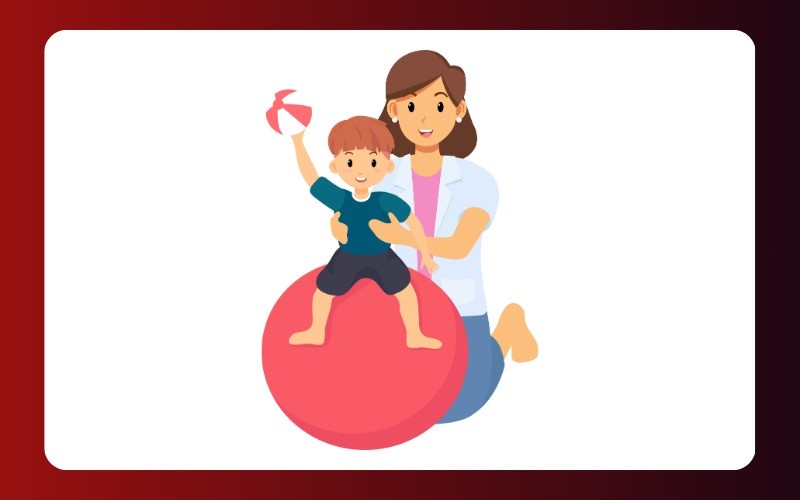Admission Enquiry

A Bachelor of Vocation (B.Voc.) in Healthcare with a specialization in Child Development & Rehabilitation (CDR) offers a comprehensive program designed to equip students with the necessary skills and knowledge to work in various roles related to child development and rehabilitation. This vocational program focuses on preparing individuals to become proficient in providing therapeutic interventions and support services to children with developmental disabilities, delays, or disorders. Within this specialization, students have the option to choose between becoming a Behavior Therapist (BT), Occupational Therapist (OT), or Speech Therapist (ST), depending on their interests and career goals.
The curriculum of the B.Voc. in Healthcare/Child Development & Rehabilitation (CDR) program covers a broad spectrum of subjects relevant to child development, psychology, and rehabilitation sciences. Students delve into topics such as child growth and development, developmental milestones, pediatric neurology, developmental disorders, and therapeutic interventions for children with special needs.
Behavior Therapist (BT) Track: Students who choose the Behavior Therapist (BT) track focus on understanding behavioral principles, behavior modification techniques, and strategies for managing challenging behaviors in children with developmental disorders such as autism spectrum disorder (ASD) and attention-deficit/hyperactivity disorder (ADHD). They learn how to conduct behavioral assessments, develop individualized behavior intervention plans, and implement evidence-based behavioral interventions to improve social, communication, and adaptive skills in children.
Occupational Therapist (OT) Track: Students opting for the Occupational Therapist (OT) track focus on learning about the role of occupational therapy in promoting functional independence, sensory integration, and motor skills development in children with developmental challenges. They gain knowledge and skills in conducting assessments, designing therapeutic activities, and implementing interventions to address sensory processing difficulties, fine motor delays, and activities of daily living (ADL) challenges in children.
Speech Therapist (ST) Track: Students who choose the Speech Therapist (ST) track concentrate on understanding communication disorders, speech-language development, and therapeutic approaches to address speech, language, and communication difficulties in children. They learn how to conduct speech and language assessments, develop individualized treatment plans, and implement speech therapy interventions to improve communication skills, articulation, phonological awareness, and language comprehension in children with speech and language disorders.
Practical training components, including clinical internships and hands-on experiences in educational and healthcare settings, allow students to apply their knowledge and skills in real-world scenarios. They have the opportunity to work with children with developmental disabilities under the supervision of experienced professionals, gaining valuable experience in providing individualized care and support.
Upon completion of the program, graduates can pursue career opportunities as Behavior Therapists (BTs), Occupational Therapists (OTs), Speech Therapists (STs), or rehabilitation specialists in schools, early intervention programs, clinics, hospitals, rehabilitation centers, or community settings. They play integral roles in supporting children with developmental challenges and their families, helping them achieve their full potential and participate actively in daily life activities.
Overall, the B.Voc. in Healthcare/Child Development & Rehabilitation (CDR) program offers a specialized education that prepares students for rewarding careers in child development and rehabilitation. By offering tracks in Behavior Therapy (BT), Occupational Therapy (OT), and Speech Therapy (ST), the program allows students to tailor their education to their specific interests and career aspirations in the field of child development and rehabilitation.
Copyrights © 2024 NIILM UNIVERSITY. All rights reserved.